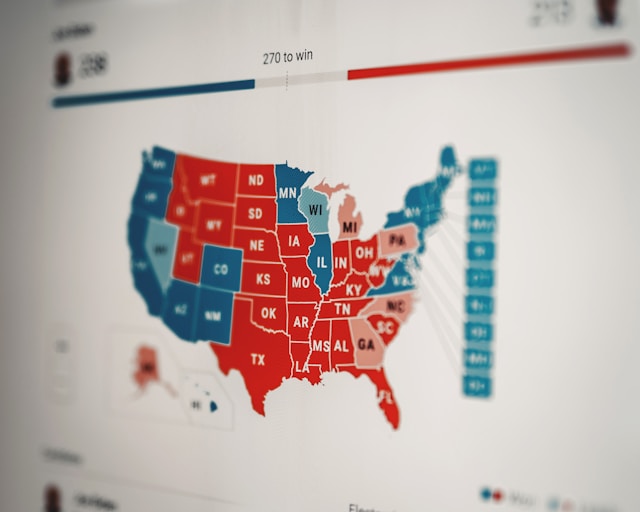
The 2024 US Presidential Elections are poised to have significant ramifications not just within the United States, but across the globe, particularly for emerging markets.
As the world’s largest economy heads into an election cycle, the potential changes in policy, economic outlook, and geopolitical stance will reverberate through the financial systems and markets of developing nations. Understanding these implications is crucial for investors, policymakers, and businesses operating within these regions.
Economic Policies and Trade Relations
The economic policies of the new administration will play a pivotal role in shaping trade relations with emerging markets. Historically, Democratic and Republican administrations have had differing approaches to trade.
A Democratic win could potentially lead to a more protectionist stance, emphasizing fair trade practices and environmental standards, which might result in stricter regulations and higher tariffs on imports from emerging markets.
Conversely, a Republican victory might favor deregulation and lower tariffs, fostering a more open trade environment. The outcome will significantly influence the export dynamics and trade balances of countries like India, Brazil, and Vietnam.
Investment Flows and Market Volatility
Emerging markets are highly sensitive to shifts in global investment flows, which are often influenced by the stability and policies of the US government. The “presidential betting odds” currently suggest a tight race, reflecting the uncertainty that could lead to increased market volatility. In times of political uncertainty, investors typically flock to safe-haven assets like the US dollar, which can result in capital outflows from emerging markets, depreciating their currencies and destabilizing their financial systems. On the other hand, a decisive and market-friendly election outcome might restore confidence and attract investment into these markets.
Monetary Policy and Currency Dynamics
The Federal Reserve’s monetary policy, closely watched and often influenced by the presidential administration, will also have profound effects on emerging markets. A continuation of the current monetary tightening to combat inflation could lead to higher interest rates, making US assets more attractive and potentially triggering capital flight from emerging economies.
This would not only strain their financial systems but also increase the cost of borrowing for these nations. Conversely, a shift towards more accommodative monetary policy could ease these pressures, although it might also lead to higher inflationary expectations globally.
Geopolitical Strategies and Regional Stability
The US’s geopolitical strategy under the new administration will significantly impact regional stability in various parts of the world. For instance, a stronger stance against China could benefit some Asian emerging markets like India and Vietnam as companies seek alternatives to China-centric supply chains.
However, it could also lead to increased tensions and economic disruptions. In Latin America, US policies towards migration and narcotics control will play a crucial role in determining the region’s socio-economic stability. The Middle East and Africa could see shifts in aid, military support, and economic cooperation depending on the new administration’s foreign policy priorities.
Environmental Policies and Sustainable Development
Environmental policies under the new US administration will have a cascading effect on emerging markets, particularly those reliant on fossil fuels. A Democratic administration might push for more aggressive climate action, promoting renewable energy and reducing reliance on fossil fuels.
This shift could impact oil-exporting countries like Nigeria and Venezuela, urging them to diversify their economies. On the other hand, it could also open up opportunities for countries rich in renewable energy resources, positioning them as key players in the global energy transition.
Technological Innovation and Digital Economies
The US is a global leader in technological innovation, and the new administration’s stance on technology and digital economy policies will influence emerging markets’ technological landscapes.
Policies promoting tech investment and innovation could lead to greater collaboration and investment in emerging market tech sectors. However, stringent regulations on data privacy and cybersecurity might pose challenges for these markets.
The growth of digital economies in countries like Kenya, Indonesia, and Brazil will be closely tied to the regulatory frameworks and technological advancements promoted by the US.
Conclusion
The 2024 US Presidential Elections are a pivotal event with far-reaching implications for emerging markets. From trade relations and investment flows to monetary policy and geopolitical strategies, the outcome of the elections will shape the economic and political landscape of developing nations.
Investors and policymakers in these regions must stay informed and agile, ready to adapt to the potential changes and leverage new opportunities arising from the evolving global dynamics. As the world watches the election unfold, the focus will be on how the new administration’s policies will impact the intricate web of global economic inter-dependencies.
